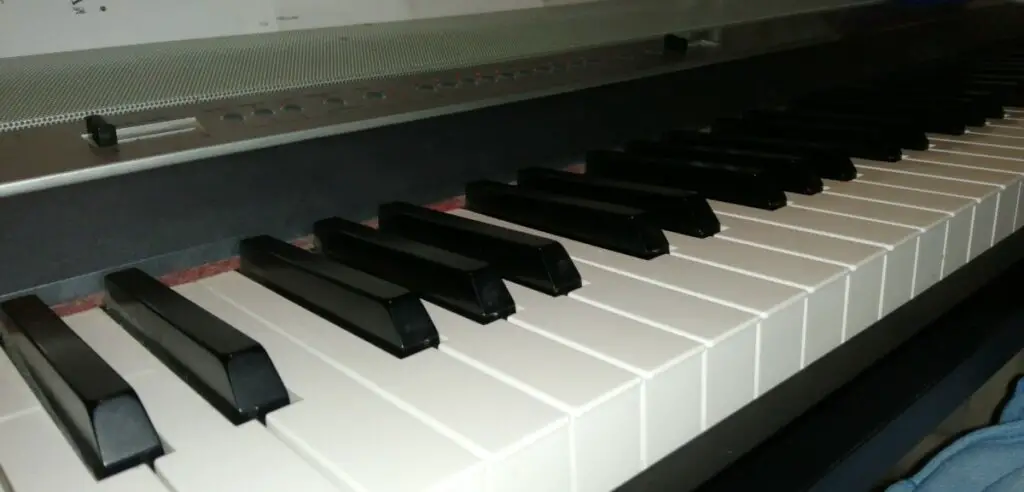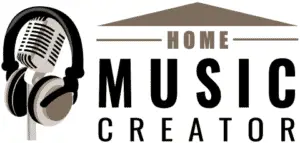
Acoustic pianos have been around pretty much unchanged for several centuries. While they are wonderful instruments, they can be a pain to maintain and are very expensive. That’s why I would always recommend the convenience (and price) of a digital piano for a home studio.
The technology in digital pianos today is so good, that you can get a very respectable digital piano for only a few hundred dollars. My recommendation is for the Korg B2 (Amazon affiliate link) – an excellent model for not very much money. It is portable enough to be easily moved around, sounds great and its weighted keys are good enough to not scare off someone used to an acoustic piano.
I can recommend Korg digital pianos, having owned a Korg SP-250 for over fifteen years and it’s still going strong. I have recorded using it many times, as both a traditional piano and as a MIDI controller keyboard.
Acoustic Pianos vs Digital Pianos
I love acoustic pianos! Having been brought up as a classical pianist, I learned to play on one and they will always be my first love musically. There is just something romantic about an acoustic piano that a digital model cannot give you.
Having said all that, I would always recommend a digital piano over an acoustic piano for a home studio setup. Here are some of the advantages they give you…
- Price – even an entry-level new acoustic model will cost several thousands of dollars, whereas a digital model will cost a few hundred
- Tuning – you don’t need to get a digital piano tuned! Whereas an acoustic piano really needs tuning by a professional at least once a year
- Portability – acoustic pianos are heavy! Digital models can be heavy, but they also come in form factors you can pick up and tuck under your arm.
- Versatility – an acoustic piano sounds like a piano. Whereas a digital piano can sound like a piano, an organ, strings, a harpsichord, a marimba, a vibraphone, etc…
- MIDI functionality – almost all digital pianos can function as MIDI controller keyboards, letting you play whatever software you have in your computer (drums, bass guitar, full orchestras, etc)
- Ease of recording – you have to use microphones on an acoustic piano, and they can be difficult to record. On a digital piano you either record via MIDI, or the audio from the line out or headphone socket straight into your audio interface
And for balance, here are a few considerations where acoustic pianos probably still win…just…
- Sound – the technology has advanced to the point where digital pianos do sound like real acoustic pianos. Honestly acoustic pianos probably still have the edge slightly here, but they’re so close now as to be insignificant
- Weighted keys – for many years digital pianos were criticized for not feeling like real pianos under the fingers. Even the cheapest models now have good weighted keys. The feel may not be exactly like playing an acoustic piano, but it’s close enough as to not put off most piano players.

